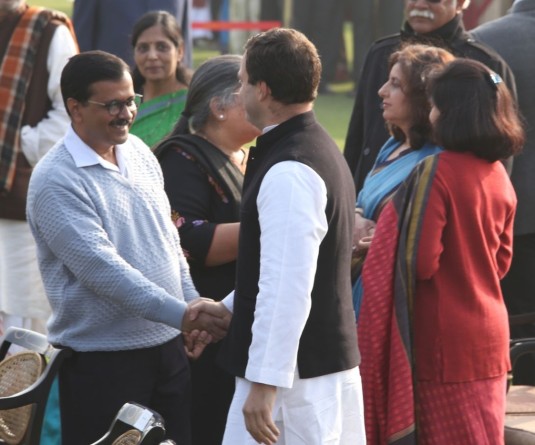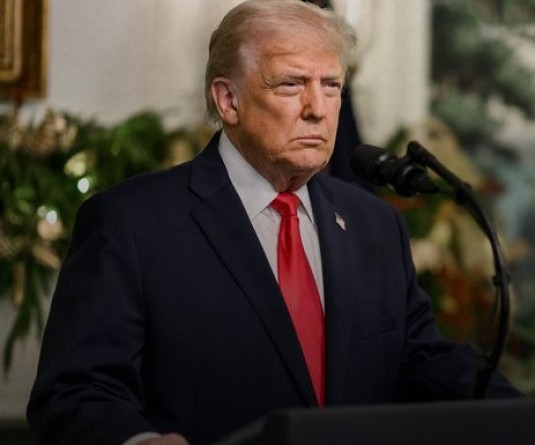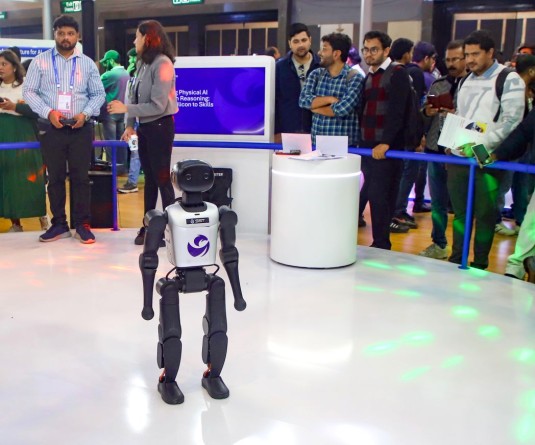A Brave New World. Revisited!

BY HIMANSHU MANGLIK
The entire world is struggling as the coronavirus struts around like a manic pigeon, threatening to send the world into recession and depression. Struggling to contain the rogue virus, we are like novice boxers taking blows and punches as we stagger around dazed and uncertain.
Sooner or later this had to happen. Pull back and you will see fault-lines strewn across the world. Most of our leaders across the world are struggling. Policies are floundering. Religions, societies, education, industry and ideologies are standing around helplessly looking for guidance and support. At the core is a very deep and fundamental imbalance. Suddenly the world is back to the starting block. Almost.
The crisis reflects a malaise that has evolved with our active participation. Mankind has been in a mental lockdown for years now, ever since we stopped thinking about how we were exploiting our future. We continued to apply technology without applying our minds. The pace of change was so rapid that we just kept adjusting and reshaping to catch up with the neighbours.
The destruction of habitats, the disregard for family systems, disruption of community bonds, the ruthless disregard for the small, cottage and village industries has been enough to bring the world to its knees. The economic lockdown is our creation. The coronavirus only took advantage just as all viruses feed on a weak and compromised immune system.
It is time to reset and recalibrate. This is the time to get back to the basics and look at our options without bias or prejudice. Every economy will have its own peculiar symptoms and they will need to be put in perspective. In India, the tragedy and reaction of the migrant labour to head back en masse to their villages during the economic crisis must galvanise us to think again.
Their exodus and desperation to move back to the villages must alert us to the insecurity and insensitivity that exists, perhaps not only for them but for most people, except the ultra rich. There is insecurity and concern all around. Economic revival needs manpower and it needs the assurance of demand for businesses to take the financial risk to get back on their feet. The problem is that both manpower and demand are disappearing, a bit like elephants headed for their final resting ground.
There is emerging concern that the contours of demand may already have changed dramatically. It may not be just a weakening of the demand quantum. Demand may no more be a simple replication of the consumer preferences that existed just a few months ago. We do not know if consumers will remain the same. Maybe they will trade down on quality or perhaps emerge with a completely new mindset.
There is little doubt that as income generation slows down or stops in weakening and locked down economies, not only for migrant workers but also for the educated professional and youth, there will be serious disruption in buying behaviour and spending patterns.
As younger generations experience the hardships of the post independence generations, the settled classifications of consumer behaviour that marketing models have silently relied on could undergo dramatic changes. Consumers might move from conspicuous spending to a saving lockdown or they may become just a bit more risk averse.
Will they aggressively look for more value addition, or will they simply demand more value for money. Business and marketing experts are wondering how the values, priorities, lifestyles could change. Maybe, enhanced sensitivity to waste and environmental degradation will focus preferences for sustainability and long-term value. Perhaps this will be a turning point that marks a reversal of the trend towards nuclear families and starts a slide back to the joint family concept of social existence.
There could be many other possibilities and none of these can be ruled out. The future is going to be challenging for psychologists and other experts in behaviour and consumer insights, as they try to demystify the consumer of the new world.
What will this brave new world look like. Much depends, of course, on the path that policy makers set us on as we begin to recalibrate the economic models, at least in India. It is like standing at the starting block, trying to anticipate the marker's pistol shot, waiting for the race to begin. There are some indicators that India is considering a model of self-reliance. If that is so, perhaps we could find some clues in the thinking and experiences of Swami Vivekananda and Mahatma Gandhi who have explored similar economics.
Swami Vivekananda believed that the greatest sin is in the neglect of the masses and they need to be well educated, well fed and well cared for. He said that we need people who have courage, vigour and fearlessness which is possible only if we have faith in ourselves. There can be little argument with that. The problem today is whether we have that faith in ourselves, to find an economic solution when we do not have the resources.
Gandhi's economic views were humanitarian. He advocated cottage industries including handloom, handicraft and sericulture to help combat joblessness, containment of wants and the integration of society. He was wary of technology-induced unemployment and stressed khadi and the charkha effectively to make his point. He emphasised plain living and cutting down on wants.
However, given the fundamental human instincts, this was perhaps too idealistic and untenable as a sustainable model, and was in conflict with the generally accepted economic models of consumer behaviour. These models have understood that the consumer behaviour cannot be static or limited. He inherently gravitates towards multiplication of wants and keeps moving to the next higher level of consumption and satisfaction.
Dr. J.D. Singh, international marketing consultant and former Professor at IIM Bangalore believes that while consumer behaviour is complex, there are some basics that are not likely to change.
He said: "On a macro level, individuals are hardwired to feel and be seen better than others. The demonstration effect is well established and is a fundamental concept in socio economic modelling. It refers to the tendency of people to imitate the consumption patterns of neighbours better off than them even if they do not have the purchasing power themselves."
An ardent advocate of responsible marketing, Dr. J.D. Singh believes: "Marketing is more about establishing trust to generate demand rather than pushing demand. Therefore, we cannot take the consumer for granted. A human being has the power to think and is like a black box. You can keep him locked down for sometime but sooner or later he will break out and explore new grounds with curiosity and anticipation."
That is really what progress is all about.
Modern management and economic culture are not much different in essence. Business builds on an understanding of human behaviour and continuously makes efforts to understand how the consumers' expectation, needs and ambition are likely to be interacting within the black box of the human mind and creating demand. If an economy has to grow, it needs the demand to be strong and predictable. If we want to progress as a society, we will need to encourage innovation and curiosity for the unknown.
This cannot happen if we remove the competitive triggers and motivators that are essential for people to set their targets and to stretch their capabilities. The difference and the solution to this problem will depend on the route that we take to become self reliant. The time has come, perhaps, to consider the CSV model more closely as the underlying business philosophy for the industry.
Creating Shared Value or CSV is not to be confused with CSR that is an artificial add-on and is often an unconnected responsibility that can become a liability for the business. The concept of Creating Shared Value was developed some years ago by Michael Porter and Mark Kramer at Harvard University as a pragmatic business philosophy.
It was accepted and adopted by Nestle S.A and the then Chairman Peter Brabeck had stressed CSV as the company's approach to business worldwide. The strength of this concept is that it underpins business strategy to create value for its shareholders while at the same time creating value for society, particularly for the community in which the company operates. The concept demands focus on environmental sustainability and is required to be embedded in each stage of the value chain.
When strategy is guided by the identified objective of creating shared value, the business plans will be structured accordingly to allow it to leverage its expertise and resources effectively. Identifying what is most significant for the communities where it operates and matching it with its own expertise will enable businesses to create shared value.
This is perhaps the middle path that we need to champion with an open mind, courage and conviction, to enable businesses to prosper while contributing to social solutions. As businesses and communities join hands to work together, they can create value efficiently in almost every area including improved quality, safety, reduction of wastage, conservation of resources, embed sustainability and efficiency in the supply chain and above all enhance loyalty and trust.
Reconstruction of the Indian economy will not be an easy matter. It will require knowledge, understanding of economics, expertise, planning, administrative acumen and the ability to implement effectively. CSV may well be the bridge that we require between economic policy and business confidence. It can leverage business resources and experience very efficiently to accelerate the happiness index in society. It may stabilise the imbalance that currently haunts the core of industry and the economy.
(Himanshu Manglik is founder and president, WALNUTCAP Consulting LLP)






